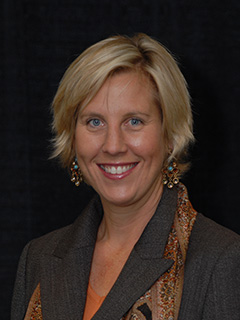1993 ASHFoundation New Investigator Grant
How One Thing Definitely Leads to Another

First came Janna Oetting’s ASHFoundation New Investigator Grant in 1993. By 1997, says Oetting, who was then a fifth-year assistant professor going up for tenure, “I was able to secure an RO3 grant from the National Institute on Deafness and Other Communication Disorders of the National Institutes of Health because I was involved in a program of research that was initially funded by the ASHFoundation.” Now Oetting, currently a professor in the Department of Communication Sciences and Disorders at Louisiana State University (LSU), is in the fifth year of an NIH RO1 grant, “which was built off of the RO3, which was built off of that first ASHFoundation grant.”
Oetting’s RO1 project is rooted in the native soil of Louisiana. “The state has many rural parishes where one can hear a number of different nonmainstream dialects of English,” she explains. “The goal of the grant is to examine the grammars of children who speak one of two nonmainstream dialects of English, African American English (AAE) or Southern White English (SWE). Both of these dialects are spoken in rural parishes where the state educational scores are low.”
Oetting’s group—currently there are 9 LSU students funded by the project—uses a battery of standardized language tests and a set of dialect-appropriate experimental probes to differentiate children with and without language impairments within these two nonmainstream dialects. “We are doing this,” she says, “by studying the grammars of the children very carefully.”
Oetting’s hypothesis is that typically developing AAE and SWE child speakers will show “very productive and creative dialect-appropriate grammars (especially in their use of tense and agreement markers) and those with language impairments will show considerably less productivity. The key to this work is dialect-appropriate stimuli and coding and the selection of typically developing control children who speak the same dialects as the children with language impairments. Just as one would never compare a French-speaking child with a language impairment to an English-speaking typically developing control, we would never compare an AAE- or SWE-speaking child with a language impairment to anyone other than a same dialect-speaking typically developing control child.”
Oetting’s ASHFoundation grant, her first award, was for her primarily about credibility. “I came from a strong research lab and when you go out on your own you really don’t know if you can do it, if you can receive funding and be successful without your mentor. And, then as now, you need funding to get funding. At the time, I thought the ASHFoundation grant was an essential step to getting NIH funding. Now, looking back, the ASHFoundation grant also gave me the confidence to be an independent scientist.”
But there’s more, Oetting adds. At the beginning of her career, entering her first academic position, “The ASHFoundation grant made me feel like a researcher. I was able to start the process of setting up my own lab and I knew the ASHFoundation was there for me. Even today, after 22 years in the field, I still believe the ASHFoundation is my group. My peeps.”
View More Recipient Spotlights